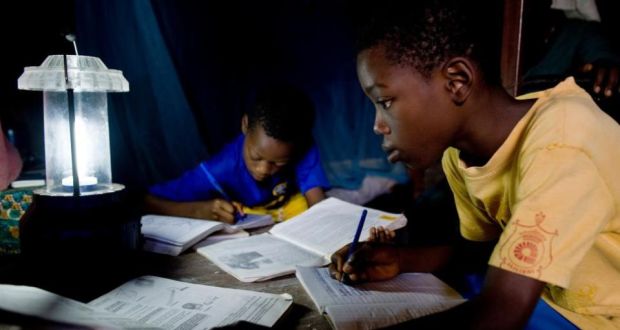Homes in countries such as Kenya, Ethiopia and Bangladesh could save $10 per month by switching to solar-powered lighting from kerosene-powered lamps, a new study has shown.
The report released recently by Overseas Development Institute also shows that with solar-powered lighting, children in developing world can gain 15 minutes extra study time a day.
“Add up that $10 per month saving over the year and you’re getting to quite a significant freeing up of income that could be used for other purposes,” said Andrew Scott the author of the report.
The United Nations has set a target for everyone to have access to sustainable, affordable energy by 2030. Up to 1 billion people around the world have no access to clean affordable energy.
While the United Nations has set a target for everyone to have access to sustainable, affordable energy by 2030, the report observes that governments have not properly implemented clean energy policies and funding for renewable energy such as solar.
Read Also:Energy production in Africa wanting shows new Atlas
Mr Scott notes that expanding national grids in developing countries to ensure rural areas are not overlooked or unconnected can be a major step forward to widening access to clean and cheap energy.
Perhaps one of the most interesting finding of the report is the massive reduction of CO2 emissions if clean energy sources are adopted.
For instance, shows the report, switching to solar in Ethiopia would reduce carbon emissions by 330 million tonnes a year which Mr Scott says is similar to removing 60 million cars from the road.
“Add up that $10 per month saving over the year and you’re getting to quite a significant freeing up of income that could be used for other purposes,” Andrew Scott
The report is part of the UN’s drive to deliver sustainable and affordable energy access to everyone on the planet by 2030.
The report is the first attempt to develop a framework that can quantify the financial, educational and environmental dividends for households that get quick access to clean, off-grid power, said the organizations.

